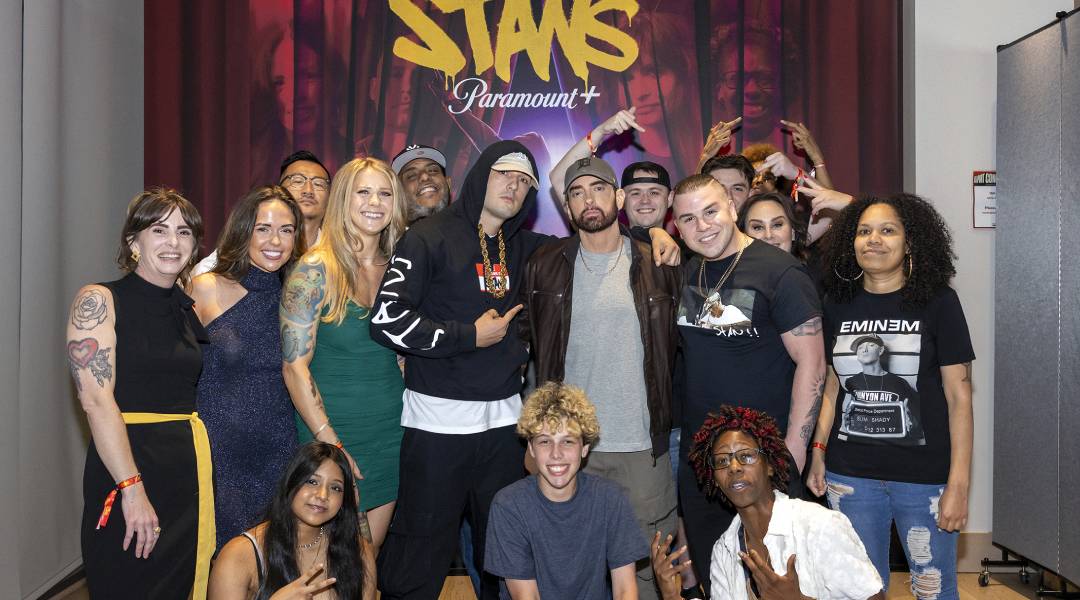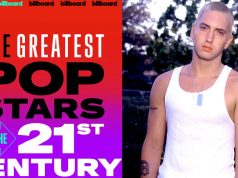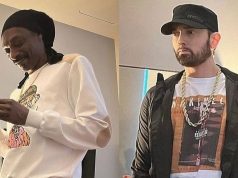Psychology Today just ran a long, reference-packed read on Stans, Steven Leckart’s new Eminem documentary, exploring how it turns Eminem’s bond with fans into a case study in belonging, identity, and healing.
The article lands on four big ideas: fandom can boost well-being; Eminem’s fans proudly wear outsider status; the film dramatises artist–fan connection through shared trauma; and the fan-narrators echo what psychology already knows about fandom.
The piece starts where Eminem changed the dictionary. Of all the words he has coined, one made the Oxford English Dictionary: “stan”. In Stans, that word comes alive as sixteen self-described stans read the letters they have sent Marshall Mathers. The questions feel intimate: “Is Stan based on a real fan?” “Who helped you like you helped me?”, but they also show a deeper need: connection.
That word threads through the film and the article. Research calls it a “parasocial relationship”, a one-way bond with someone you do not actually know. The narrators in Stans are savvy about it, even naming the term, and they keep returning to a line born in the song: “I’m just like you”. It is identification with an artist who turned alienation into art: Marshall the person, Eminem the alter ego, Slim Shady the mask for America’s darker corners.
The article does not skip the shadows. “Stan” is a cautionary tale, and fans in the film say so out loud; one calls it “almost a PSA”. Eminem himself has rapped about needing boundaries, but in Stans he also shows care and respect for the people who see themselves in his story. The fans answer back with examples of how that bond changed their lives for the better.
Psychology Today connects those stories to wider research. Scholars have found that fan gatherings build social engagement and can support well-being; fans also use community to shape an “ideal self”. That tracks with Stans: the people on camera span ages, backgrounds, and identities, yet meet in shared experience: bullying, addiction, grief, survival, and turn outsider status into a badge.
The film spotlights specific journeys. Zolt flies from France to Detroit to trace Marshall’s roots, then keeps a brief, respectful meeting when chance finally puts him in the same car. Nikki gets mocked online for her many Eminem tattoos but finds friendship, community, and even her husband through that visible devotion. Katie once worked at the Detroit restaurant where Marshall washed dishes, hoping for a chance meeting. By the end of Stans, she is more interested in being understood than in getting a selfie with Eminem, believing the documentary says more to more people than any quick meet-and-greet ever could.
Taken together, the article comes to a conclusion: Stans is a movie about belonging, not obsession. Eminem’s catalogue offered a language for pain and persistence, and the film shows how fans use that language to connect, to heal, and to push back at the worlds that hurt them. As Marshall puts it in the documentary, the fans who feel like he does are the ones who truly get him because, in a real way, they are him, and he is them.
Read the full article here >>>












